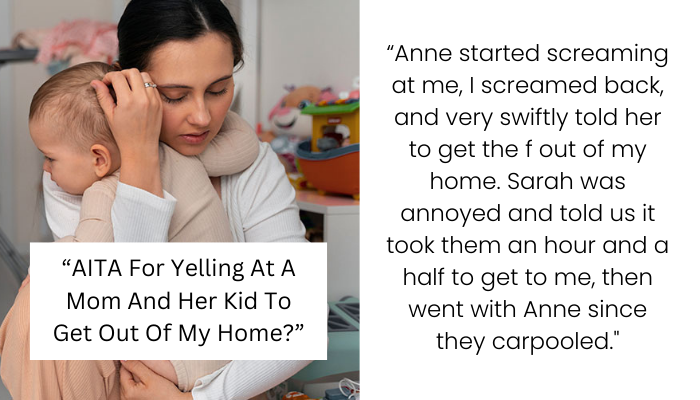Kicked Out Over Chaos: Was I Wrong to Yell at a Mom and Her Toddler During My DnD Game?
A 28-year-old woman opened her home to friends for a Dungeons & Dragons campaign, only to find herself at the center of an online firestorm. Her generosity in welcoming a new guest, Anne, who’s a single mother, was tested when Anne brought her toddler without asking. What followed was a night of stress, boundary-pushing, and an explosive confrontation after the child startled the host’s dog—breaking a clearly stated rule to “ignore the dog.”
After asking the mother and child to leave following a heated exchange, the host woke up to find herself publicly labeled as controlling and discriminatory on social media. Her long-time friend Sarah, who had vouched for Anne and carpooled with her, is now not speaking to her. While the remaining guests stayed and enjoyed the evening, the emotional fallout from the incident has left the host questioning if she was out of line or simply defending her home and sanity.
Guests who don’t have basic decency are a real pain

So one woman ended up having to kick someone out of game night
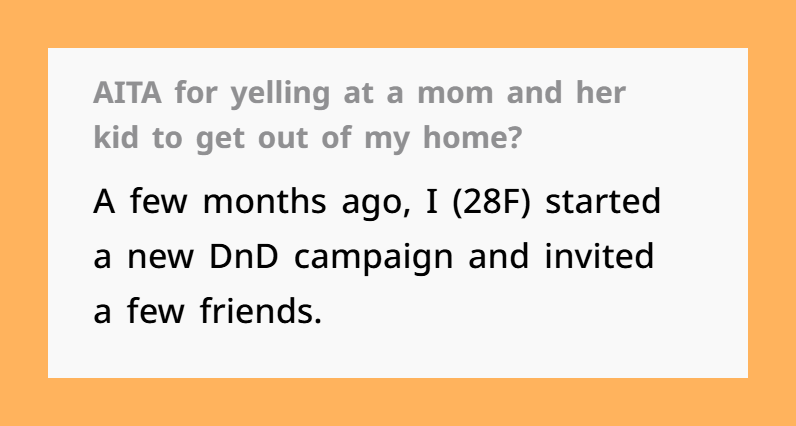
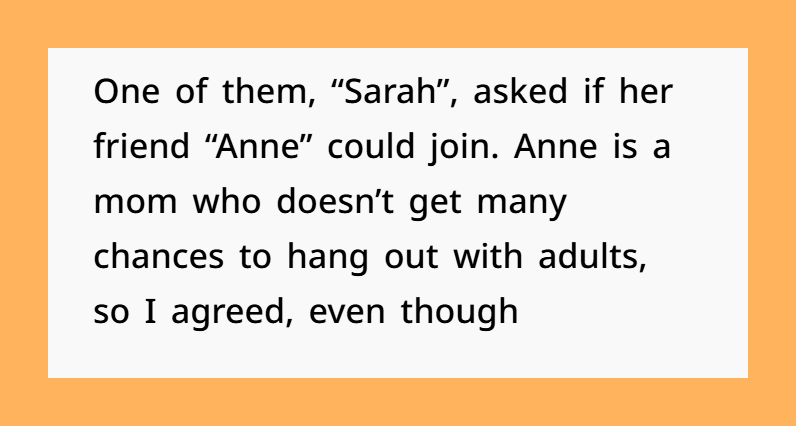
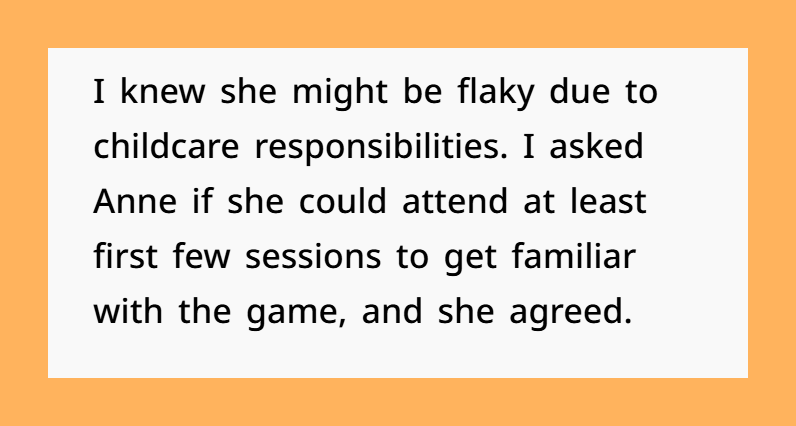
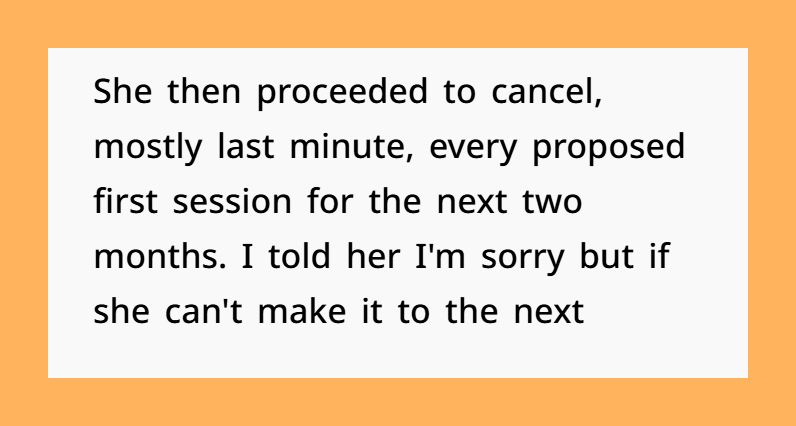
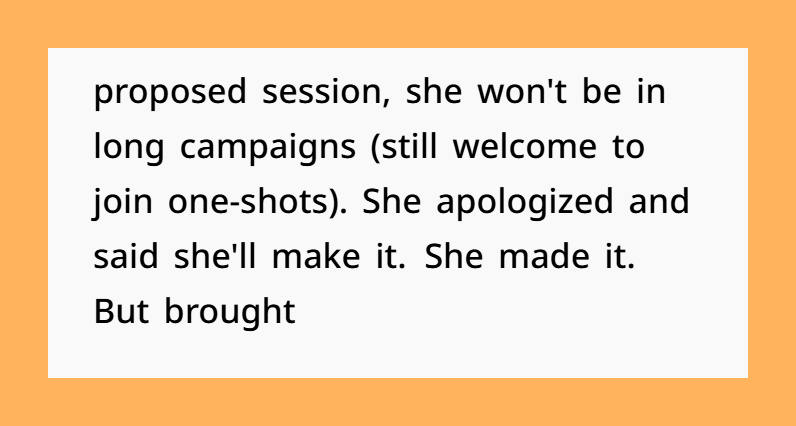
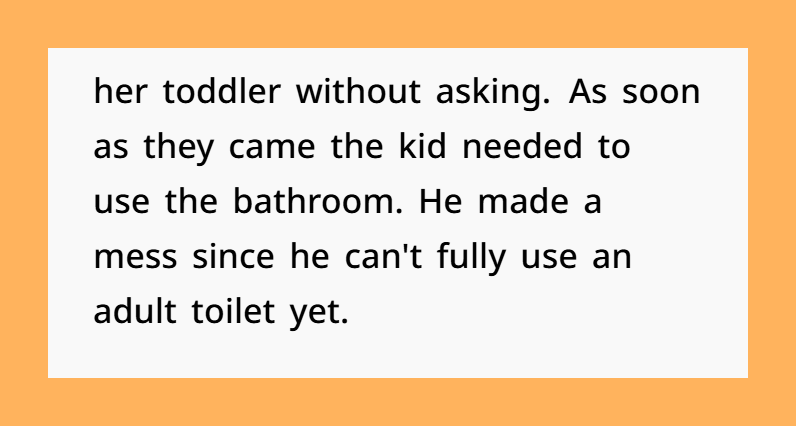
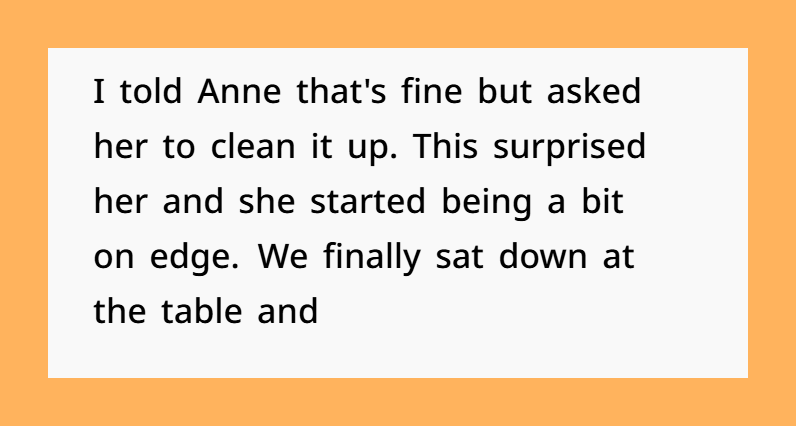
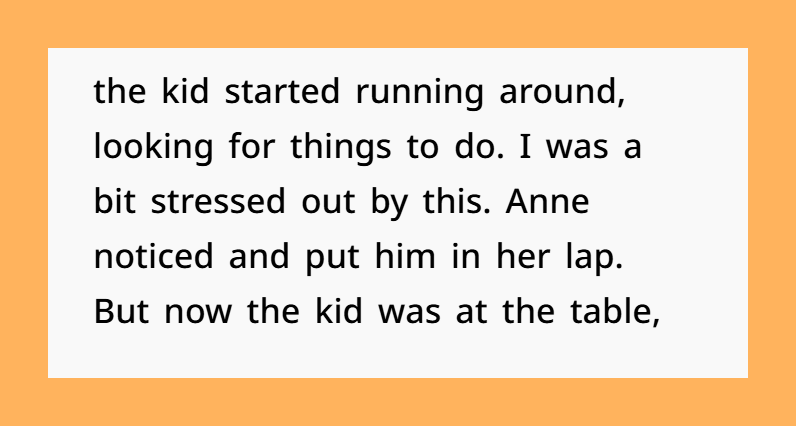
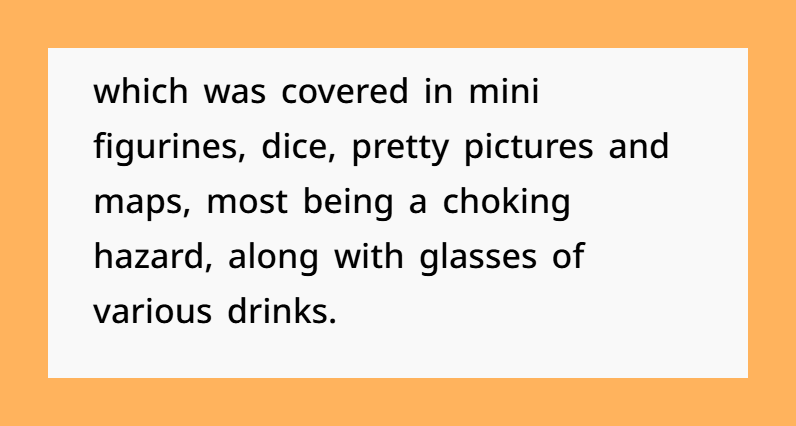
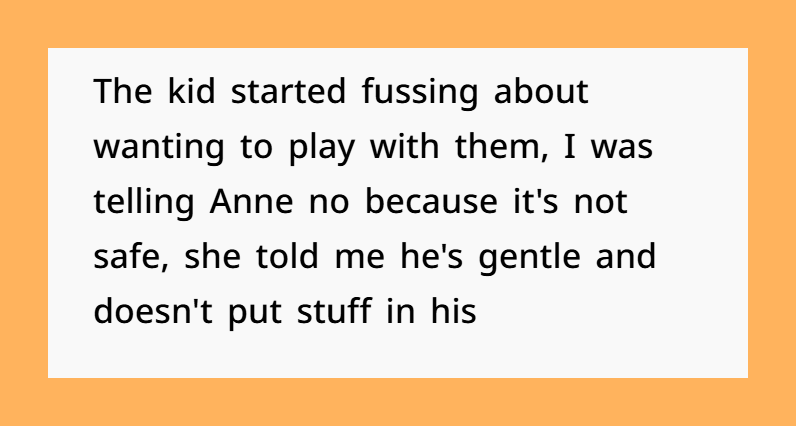
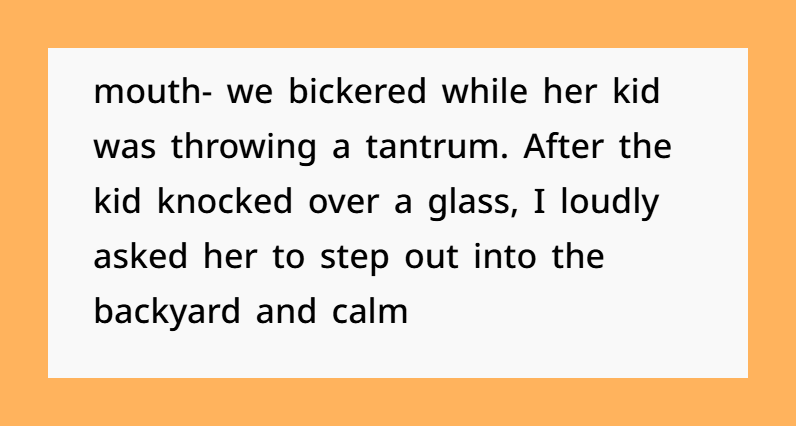

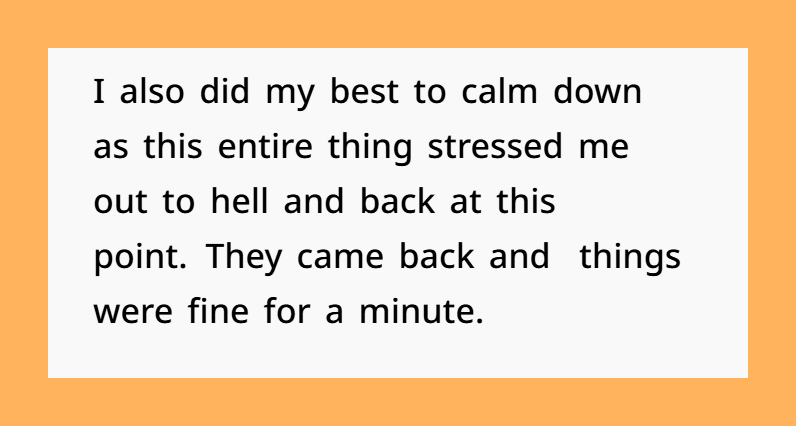

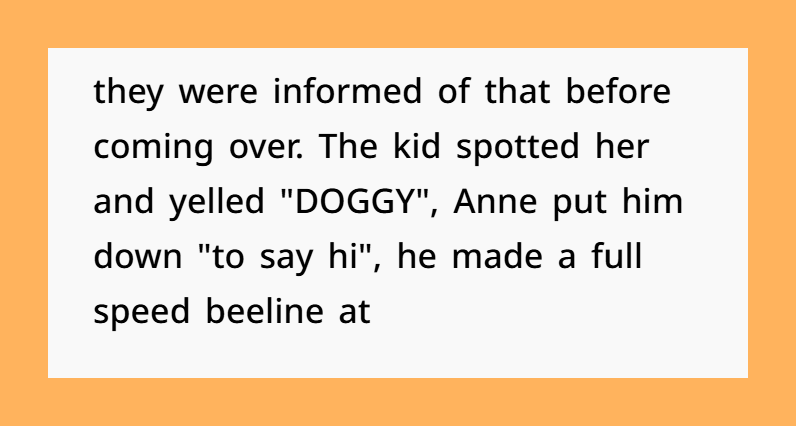
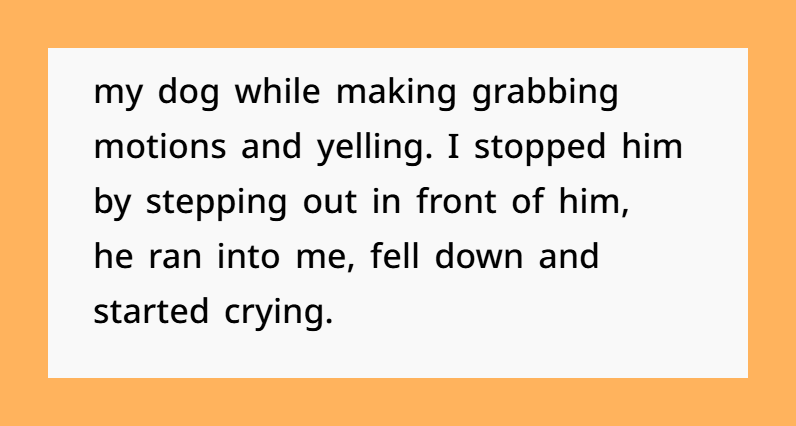
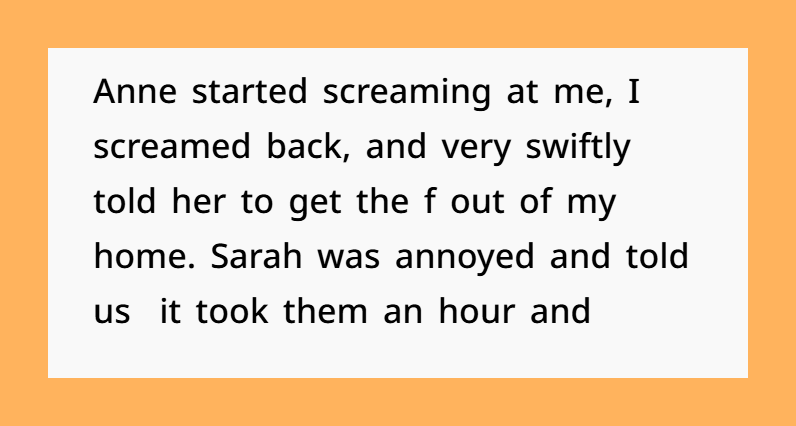
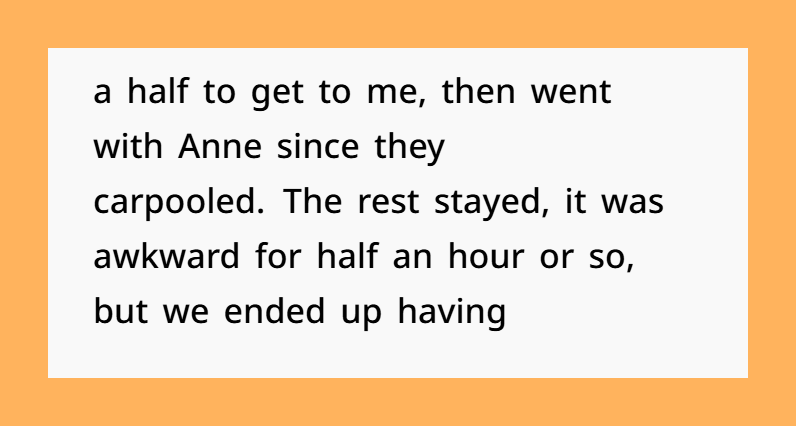
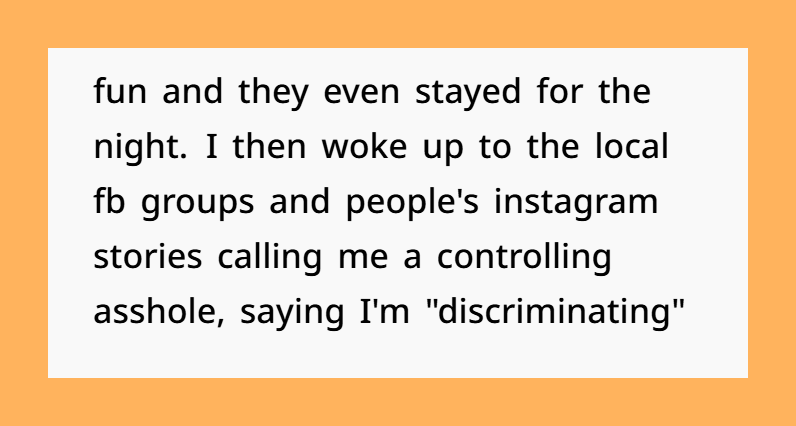
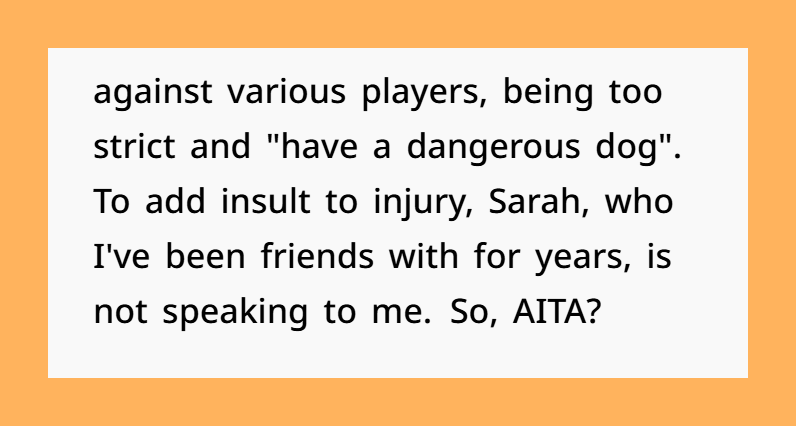
A Deep Dive into Boundaries, Parenting in Shared Spaces, and the Right to Say ‘No’
This situation taps into a broader cultural conversation about personal boundaries, the complexities of parenting in social environments, and what it means to manage safety in your own home, especially when pets and young children are involved.
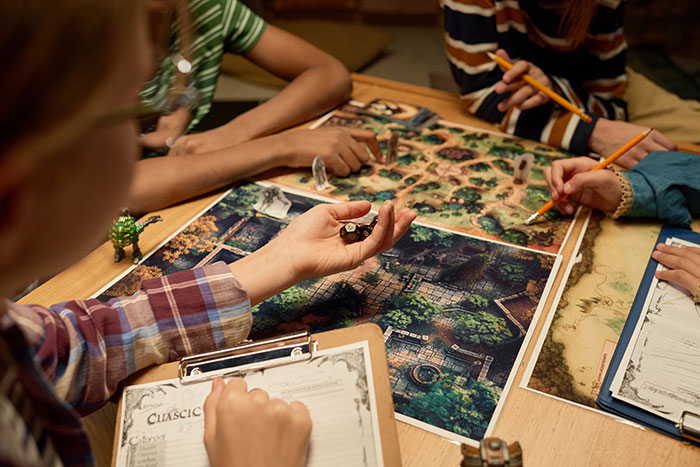
Hosting Etiquette vs. Parental Expectations
When it comes to inviting parents with young children to adult-oriented events, especially something as detail-intensive and immersive as a Dungeons & Dragons campaign, clear communication and mutual respect are critical. The host here had every right to expect that guests would come alone unless prior arrangements had been discussed. Bringing a child unannounced places pressure on the host to accommodate not just another human, but a child with entirely different needs, routines, and risks.
This touches on a frequent point of tension in social settings: the assumption that everyone will adapt around a child. While many parents feel excluded from social activities due to a lack of childcare, it’s unfair to expect others to compromise their plans or home environment without notice or consent. As etiquette expert Emily Post’s foundation suggests, respecting hosts means honoring the boundaries they’ve clearly communicated (source).
Safety, Pets, and the Law
The host had a clear rule: “Ignore the dog.” This wasn’t arbitrary—it’s a well-established principle among pet owners and animal behaviorists. Unfamiliar children approaching animals—especially those not socialized to young kids—can lead to injury. According to the American Veterinary Medical Association (AVMA), more than 4.5 million dog bites occur each year in the U.S., and children are the most common victims, often due to poor supervision or misunderstandings about how to interact with animals (AVMA).
In legal terms, a homeowner may also be liable for injuries on their property, but those rules change when guests violate clearly stated boundaries. The “one bite rule” or “strict liability” laws vary by state, but if a guest provokes an animal despite explicit warnings, liability can shift to the person who ignored the rules (Nolo). In this case, if the child had been bitten, Anne’s decision to let him charge the dog despite clear instructions could have placed her at fault.
Emotional Labor and the Burden of Hosting
What often goes unnoticed in such disputes is the emotional labor required to host any gathering, let alone one with creative planning like a DnD campaign. Game masters often spend hours preparing maps, miniatures, and narratives. When chaos—like a toddler knocking over glasses and crying—interrupts that flow, it’s not just a minor inconvenience. It derails an entire shared experience.

Moreover, emotional labor disproportionately falls on women. A study by the American Sociological Review found that women are more likely to take on invisible labor in social settings, including managing guests’ needs, de-escalating tension, and ensuring a smooth event (ASR Study). Being forced into this role while also being accused of overreacting reflects a larger social double standard.
Social Media Shaming and the Weaponization of “Community”
After the event, the host was vilified on Facebook groups and Instagram stories, branded as controlling and discriminatory. This raises serious concerns about the weaponization of online communities to enforce social pressure or punish perceived slights. It’s one thing to vent frustrations to a friend; it’s another to publicly name and shame someone without context.
This kind of online behavior aligns with what researchers call “cancel culture spillover,” where personal grievances become community talking points—often without the accused having a voice. According to a Pew Research study, 58% of Americans feel that people using social media to call out others can also lead to unfair reputational damage (Pew Research).
The Right to Your Own Boundaries
At the end of the day, a person’s home is their sanctuary. The host extended a kind invitation, made clear her expectations, and adjusted multiple times to accommodate an uninvited toddler. Her final boundary was crossed when the safety of her pet and the comfort of her guests were put at risk.

She wasn’t discriminating against parents or kids—she was reacting to being repeatedly disrespected, ignored, and finally screamed at in her own space. Boundaries aren’t just suggestions—they’re emotional and sometimes legal shields that protect us from burnout, chaos, and yes, unwanted drama.
Some folks wanted more details
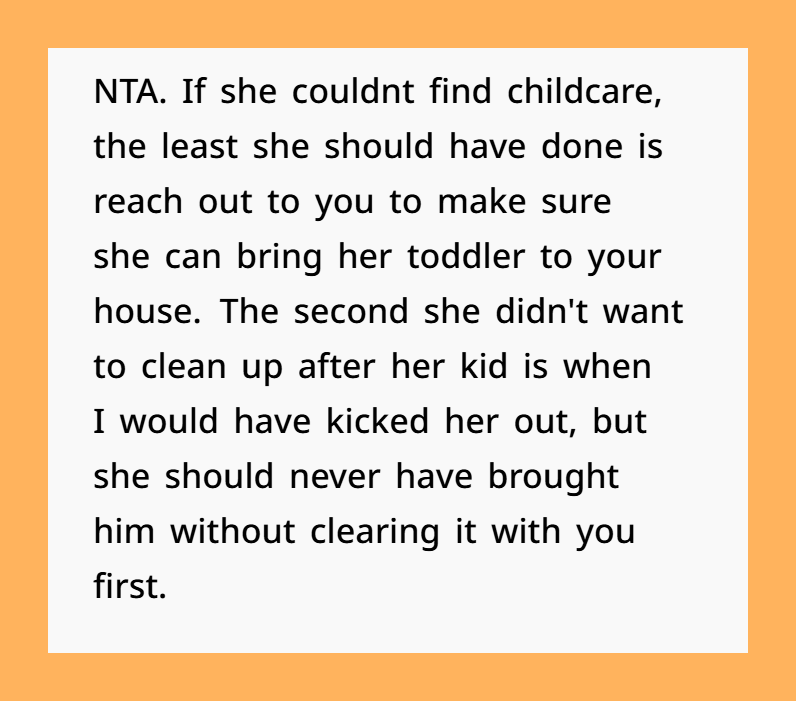
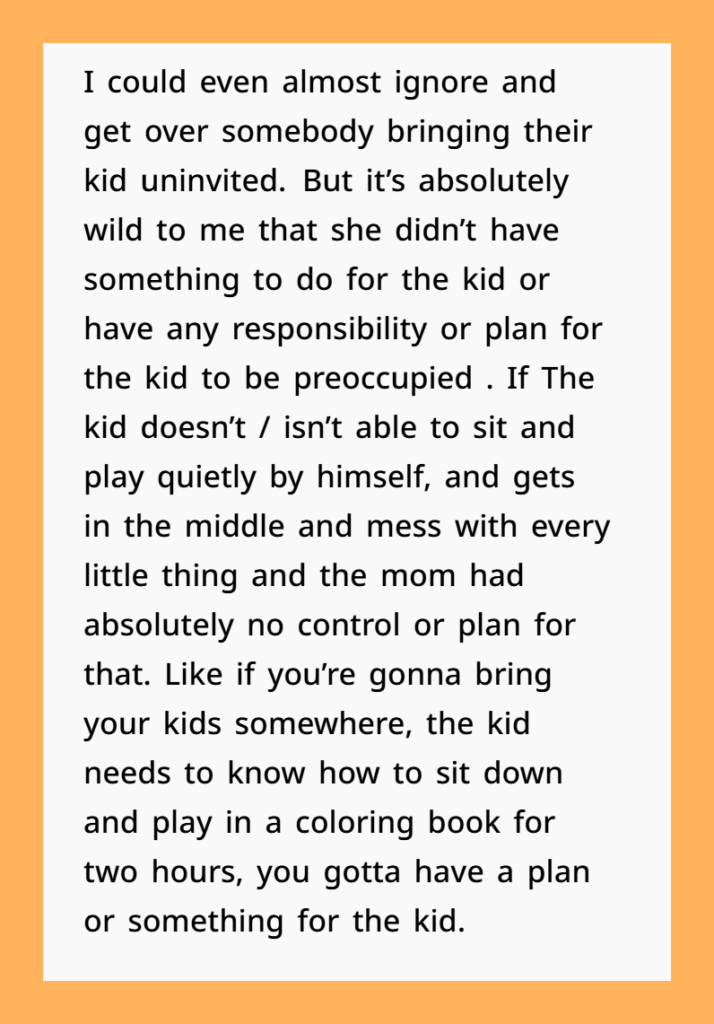
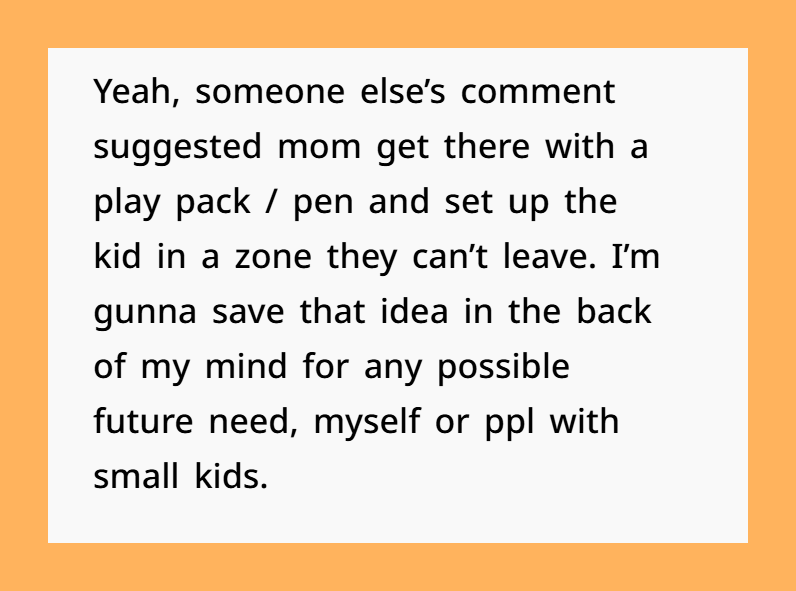
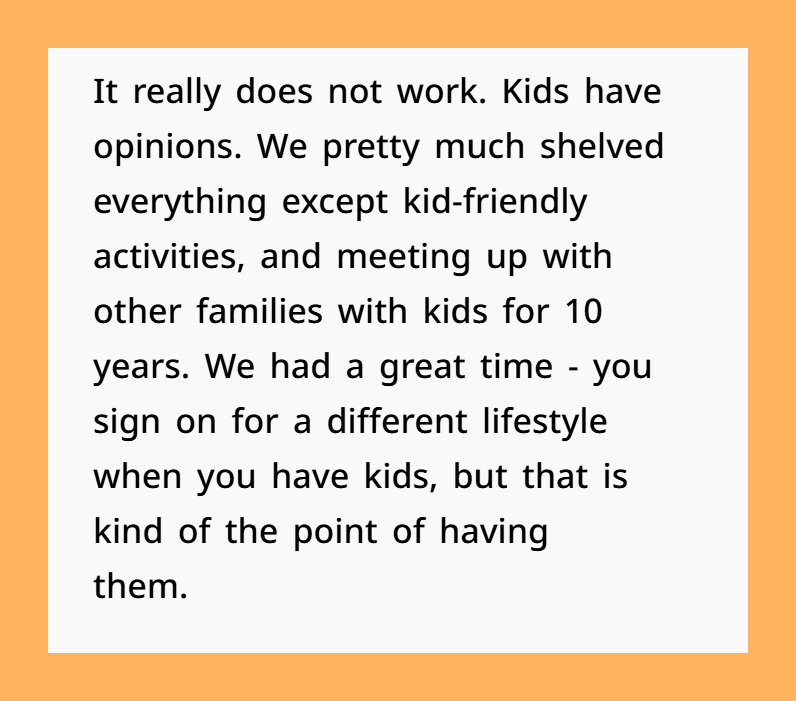
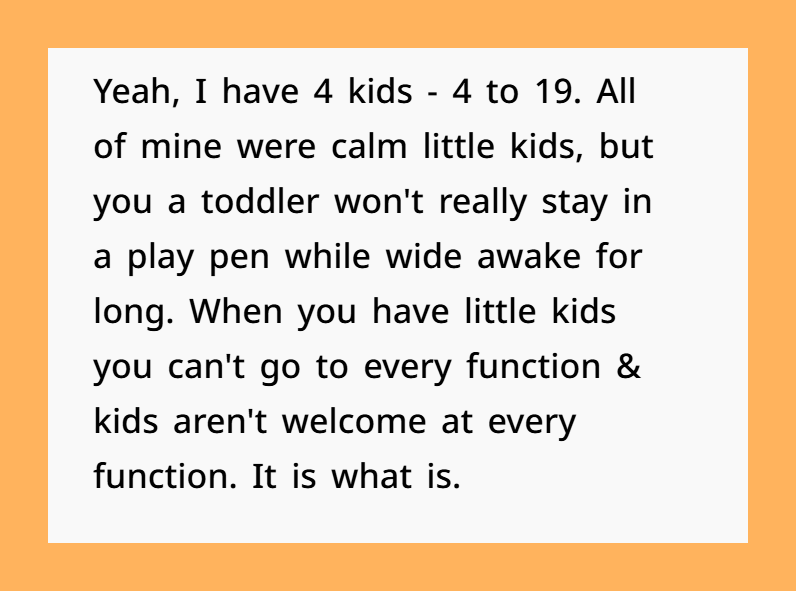
This isn’t just a DnD dispute—it’s a microcosm of a much larger conversation about the limits of accommodation, the emotional toll of being “the bigger person”, and the social risks of asserting personal space in a culture that often demands compromise at the expense of well-being.

